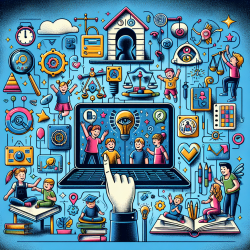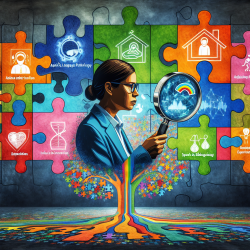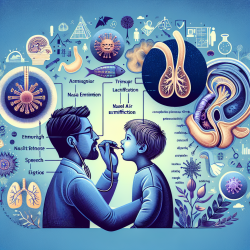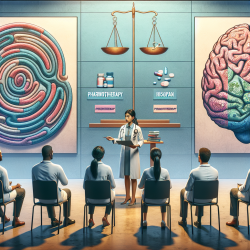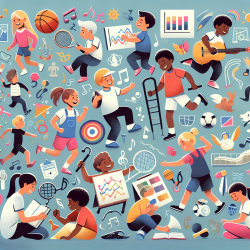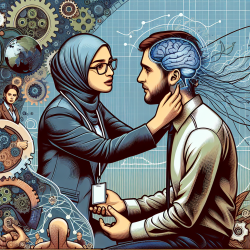The protection of children with disabilities is a fundamental right enshrined in the UN Convention on the Rights of the Child and the Convention on the Rights of Persons with Disabilities. Despite these protections, children with disabilities, particularly in low- and middle-income countries (LMICs), face significant barriers to accessing early intervention and rehabilitation services. Addressing these challenges requires a robust framework for monitoring, evaluation, and learning (MEL) to ensure that interventions are effective and scalable.
The Enabling Inclusion® (EI®) program, designed by Amar Seva Sangam (ASSA) in Tamil Nadu, India, leverages technology to provide comprehensive rehabilitation services to children with disabilities. The EI® app supports screening, assessment, and monitoring of children’s progress, enabling family-centered, goal-based interventions. The success of the EI® program is underpinned by an extensive MEL framework that guides decision-making and adaptation of the program.
Key Features of the MEL Framework
- Organizational Structure: ASSA established a social enterprise, Amar Seva Global Association (ASGA), and a Centre of Excellence to support the scaling process and ensure quality.
- Program Indicators: The EI® app tracks comprehensive indicators, including service provider activities, child developmental screening, types of interventions, and changes in developmental scores.
- Performance Indicators: Key performance indicators, such as the percentage of completed activities and module utilization rates, help in assessing program effectiveness.
- Stakeholder Feedback: Regular feedback from children, caregivers, service providers, and community members informs iterative program changes and upgrades to the EI® app.
Scaling the EI® Program
The EI® program has achieved significant scale both vertically within Tamil Nadu and horizontally to other states in India and globally. Vertical scaling involved partnerships with Tamil Nadu’s Disability and Health Departments, while horizontal scaling was achieved through licensing the EI® app to other NGOs and forming knowledge partnerships with government departments.
Vertical Scaling
Vertical scaling included expanding the EI® program within Tamil Nadu with additional private funding and government partnerships. For instance, the partnership with the Tamil Nadu Disability Department led to the RIGHTS project, which aims to strengthen social protection systems for persons with disabilities.
Horizontal Scaling
Horizontal scaling involved licensing the EI® app to NGOs across various states in India and abroad. The MEL framework facilitated the customization of the app to meet the specific needs of partner NGOs, including upgrading the app to cover interventions for children up to 25 years of age.
Impact of the EI® Program
From its inception in 2014 to August 2023, the EI® program has screened over 234,000 children for developmental delays, positively impacting more than 8,000 children and reducing caregiver strain for over 25,000 families. Community awareness programs have reached over 184,000 individuals, improving knowledge, attitudes, and practices regarding childhood disabilities.
Recommendations for Practitioners
Practitioners can leverage the outcomes of the EI® program by integrating a robust MEL framework into their own interventions. Key recommendations include:
- Implementing a comprehensive MEL system that tracks program and performance indicators.
- Regularly gathering and acting on stakeholder feedback to inform program adaptations.
- Customizing interventions to meet the specific needs of different populations and contexts.
- Forming partnerships with government departments and NGOs to facilitate scaling.
To read the original research paper, please follow this link: Leveraging monitoring, evaluation, and learning to scale the Enabling Inclusion® program for children with disabilities in India and globally.
